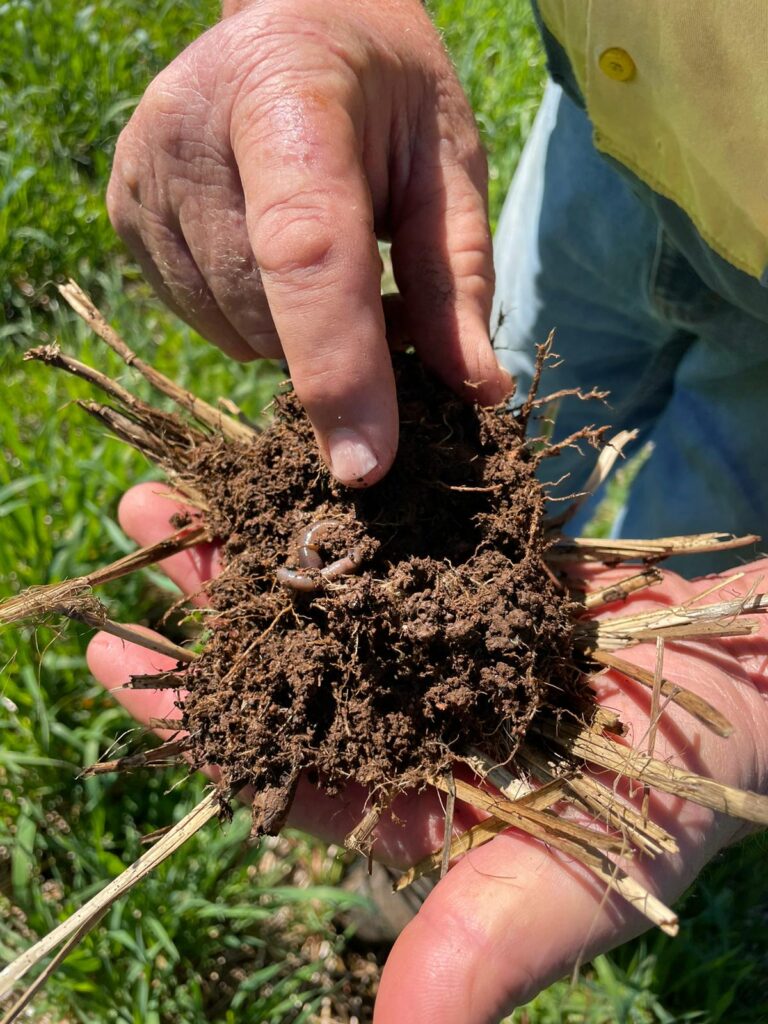Soil is one of the most valuable resources for agricultural productivity. As Australia’s agricultural industry continues to flourish, it faces a significant challenge in combating soil degradation and erosion. The importance of soil health cannot be overstated, as it directly affects crop yield, water quality, plant nutrients and biodiversity. It is therefore essential for farmers to implement sustainable soil management practices to combat erosion and degradation, ensuring the long-term viability of their agricultural systems for the future.
The Importance of Soil Health
Soil health is the foundation upon which agriculture thrives. Healthy soil is essential for optimal plant health and crop growth. It can provide a range of environmental benefits, including increased water filtration and a stronger resistance to pests and diseases. However, the relentless exposure to natural elements, intensified land-use practices, and climate change significantly contributes to soil degradation and erosion in Australian farming regions.
Australia is particularly vulnerable to soil erosion and degradation due to its diverse climate and landscape. According to a study conducted by the Australian government, approximately 24% of Australia’s total land is affected by erosion, with an estimated annual soil loss of 6,800,000 tonnes. Furthermore, Australia’s extreme weather conditions, such as droughts and floods, exacerbate soil erosion, leading to a substantial loss of topsoil and nutrient-rich organic matter.
According to the Australian Government’s State of the Environment Report 2016, approximately 22% of agricultural land in Australia has experienced some level of soil degradation. Additionally, studies by the Department of Agriculture, Water and the Environment have identified erosion as the primary cause of soil degradation across the country, leading to substantial losses in soil fertility and productivity.
To preserve soil fertility and combat erosion, farmers can adopt a range of sustainable soil management practices. One technique in the no-till system is cover cropping, which involves leaving crop residues on the soil surface after harvest and planting cover crops into stubble. This practice protects the soil from rain and wind, reducing erosion and enhancing organic matter content. Studies have shown that no-till cover cropping can decrease soil erosion by up to 90% compared to conventional methods.
Combatting Soil Degradation and Erosion Through Sustainable Practices
- Adopting No-Till Techniques: No-till farming is a practice which aims to not disturb the soil by when seeding to help mitigate erosion. This technique has gained popularity in recent years and has shown promising results in both improving soil structure and reducing soil loss. By leaving crop residues on the field and using specialized no-till seeding equipment, farmers can conserve soil moisture, enhance organic matter content, and reduce weed pressure.
- Implementing Crop Rotation: Planting a diverse range of crops in rotation can help maintain soil health and reduce the risk of erosion. Crop rotation prevents the depletion of specific nutrients and minimises the buildup of pests and diseases in the soil. By alternating deep-rooted and shallow-rooted plants, soil structure is improved, and erosion risks are reduced.
- Contour Bunding or Ploughing: Contour bunding, where stones are placed around the contours of slopes or furrows are created along the land’s natural contour lines, as opposed to downhill. This method effectively slows down water runoff, allowing it to infiltrate into the soil rather than carrying away valuable topsoil. Contour ploughing is particularly helpful on sloping or hilly terrain.
- Rotational grazing is a sustainable soil management practice that also plays a vital role in preserving soil health. By moving livestock between different paddocks frequently, vegetation has the opportunity to recover and replenish nutrients, reducing soil compaction and erosion. An experiment conducted in Australia’s Great Barrier Reef watershed found that rotational grazing reduced sediment runoff by 47% compared to continuous grazing systems.
In addition to these practices, farmers can also try to mitigate soil degradation by implementing soil conservation measures such as terracing, maintaining ground cover, and improving water infiltration through proper drainage systems.
Soil degradation and erosion pose significant threats to Australian farming, impacting soil health and long-term agricultural sustainability. By implementing sustainable soil practices, such as no-till techniques or crop rotation farmers can combat erosion and degradation effectively. Preserving soil health is crucial not only for the agricultural industry but ensures a more sustainable and resilient future for generations to benefit and thrive on in years to come.
References:
- Australian Government, Department of Agriculture, Water and the Environment. (2016). State of the Environment 2016: Soil degradation. Retrieved from https://soe.environment.gov.au/theme/soil-topic/soil-degradation
- Gourley, J. (2020). The benefits of no-till farming. Grains Research and Development Corporation (GRDC). Retrieved from https://grdc.com.au/resources-and-publications/groundcover/ground-cover-issue-146-may-june-2020/the-benefits-of-no-till-farming
- NSW Department of Primary Industries. (2010). Contour ploughing and contour banks. Retrieved from https://www.dpi.nsw.gov.au/agriculture/soils/structure/contour-ploughing-and-contour-banks
-
Australian Government, Department of Agriculture, Water and the Environment: “Soil Health and Distribution.” (https://www.agriculture.gov.au/abares/land-use/land-use-publications/soil-health-distribution)
-
Jury, M. R., and Flavel, T. C. (2015). “Soil erosion and cropping practices on slopes: A review of simulation studies.” Journal of Soil and Water Conservation, 70(6), 137A-142A.
-
Olson, K. R., et al. (2020). “Contour farming reduces soil erosion.” Journal of Soil and Water Conservation, 75(2), 201-211.
-
Carbon Farming Knowledge Platform: “Reducing sediment runoff with grazing management.” (https://www.farmcarbon.com.au/page/reducing-sediment-runoff-grazing-management)
*Disclaimer: The articles presented are generated using a combination of AI technology and human contributions. We encourage readers to use their critical thinking and discretion when consuming the content and consider cross-referencing information from credible sources. Whilst our team reviews and edits the AI-generated articles, the algorithms may produce errors or omissions that are missed. We are not liable for any damages or losses that may arise from the information provided on this website.

